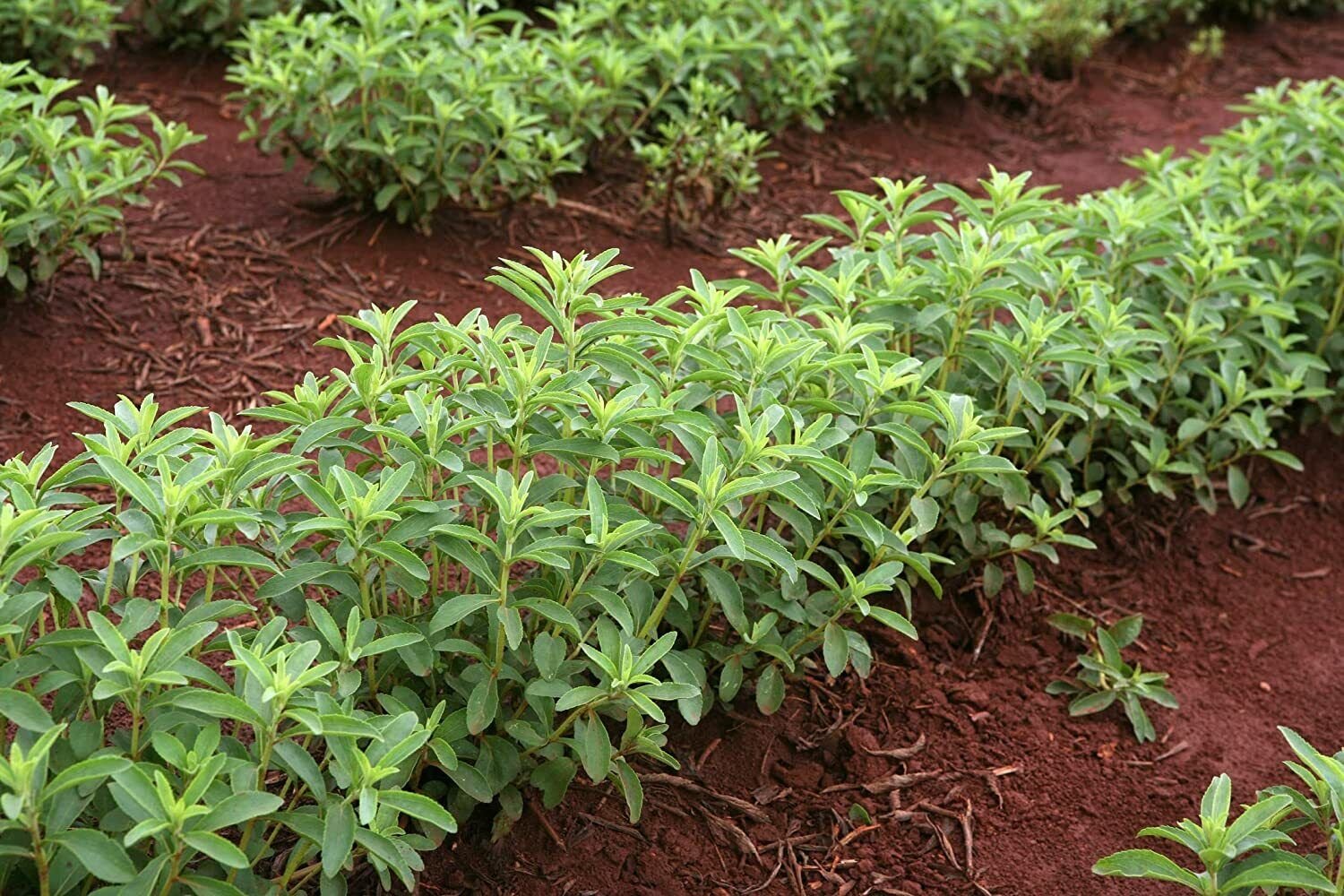
Stevia
We have come to know stevia today in its common form as a sugar replacement, especially in tea or coffee. Some popular brands include Truvía – owned by Coca Cola and PureVia - owned by Pepsi. Both have distributed and used this sweetener in their drinks since 2008. But what actually is stevia and is it that much better for you?

Stevia is a natural substance derived from the leaves of the plant species Stevia Rebaudiana, which grows in Paraguay and Brazil. The genus was named for the Spanish botanist and physician Pedro Jaime Esteve (1500–1556) a professor of botany at the University of Valencia. The plant has been used for more than 1500 years to sweeten local teas and medicines, by the Guaraní peoples of South America, who called it ka'a he'ê ("sweet herb").
Splenda, one of the most popular sweetener brands in the US, uses stevia and even produces a stevia-only product.
During the 1990s, the United States Food and Drug Administration (FDA) received two petitions requesting that stevia be classified as “generally recognized as safe” (GRAS), but the FDA refused the petitions on the basis that not enough research had been conducted.
When the Dietary Supplement Health and Education Act was introduced in 1994, the FDA revised its stance and permitted stevia to be used as a dietary supplement, although still not as a food additive.
It wasn’t until December 2008 that the FDA granted GRAS status to Truvia and PureVia, both of which use rebaudioside, derived from the Stevia Rebaudiana plant. However, the FDA said that these products are not stevia, but a highly purified Stevia Rebaudiana extract.
Truvía is owned and manufactured by the Coca Cola Company.
In 2015, the FDA still regarded stevia as "not an approved food additive," and stated that it "has not been affirmed as GRAS in the United States due to inadequate toxicological information."
Currently, only the purified form of stevia, called stevioside, is approved by the FDA as safe to use. Products considered safe contain words in their ingredient list such as “stevia extract” or “Stevia Rebaudiana.”
If you see whole stevia leaves or crude stevia extracts at your local natural foods store, or in ingredients lists, you shouldn’t buy them. The FDA still says that it doesn’t have enough information about stevia’s potential impact on health to approve these forms as safe for consumption.



